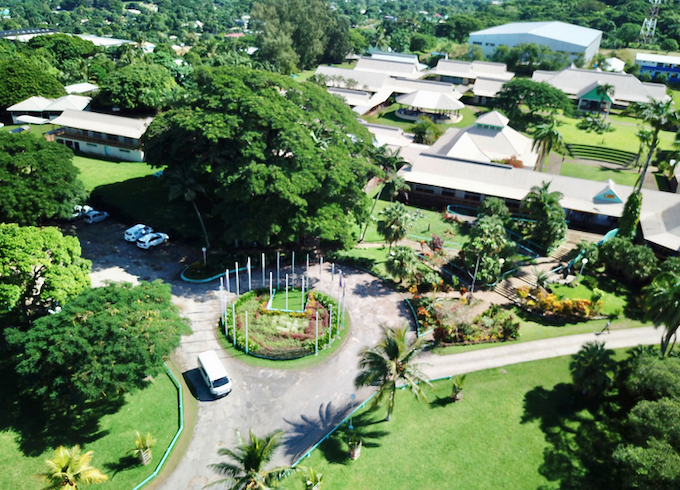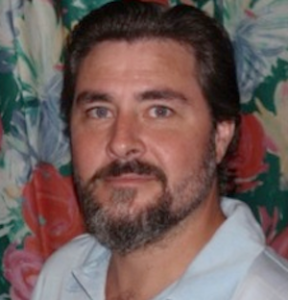Related News

USP’s Emalus campus in Port Vila . . . base of the Pacific law students who initiated Vanuatu’s climate initiative at the United Nations. Image: USP
By DR KALINGA SENEVIRATNE
There was euphoria at the campus of the University of the South Pacific (USP) in Suva in Fiji last Thursday when news came from New York that a historic resolution on climate action had been adopted unanimously at the United Nations General Assembly.
The resolution refers to the International Court of Justice case that would result in an advisory opinion clarifying nations’ obligations to tackle the climate crisis and the consequences they should face for inaction that could be cited in climate court cases in the future.
The campaign for the landmark resolution, supported by more than 130 member countries, started its journey in 2019 when a group of final-year law students conceived the project as an extra-curricular activity known as “learning by doing” on USP’s international environmental law course at their campus in Port Vila in Vanuatu.
An elated Dr Justin Rose, adjunct associate professor of law and coordinator of the 2019 class where the campaign originated, told University World News from New York where he had joined his former students for the UN vote that it was any lecturers dream to see such results achieved by the students he had guided.

“Teaching and learning about climate change and climate change governance can increasingly be somewhat depressing — I teach what are essentially the same problems, and the same proposed but unimplemented solutions, that were taught to me at ANU [Australian National University] in 1992 when I studied the course I now coordinate.
“Those same problems and solutions have been ignored for so long that catastrophic climate impacts are occurring,” notes Rose.
Then in 2019 he set up an extra-curricular exercise that students could volunteer for.
A different skillset
“There were 20 participants from a class of 140,” he said, recalling how the project started.
“It was a way to teach a different skillset to those interested in doing some extra work and to empower them to do something positive about climate change.
“The exercise was, firstly, to discuss among the group the most productive legal action Pacific island countries could initiate within international law, and secondly to prepare letters and a brief that could be sent to PIF [Pacific Island Forum] leaders seeking to persuade them to implement it,” explained Rose.
When, at the annual summit meeting of the PIF leaders in 2019, the leaders only “noted” the proposal, the students did not give up but instead formed an organisation — Pacific Islands Students Fighting Climate Change (PISFCC) — to start what soon became a global youth campaign for an International Court of Justice climate change opinion.
Their key objective was to convince the governments of the world to seek an advisory opinion from the International Court of Justice answering a question that would develop new international law integrating legal obligations around environmental treaties and basic human rights.
They were soon joined by the World’s Youth for Climate Justice.
The world ‘has listened’
“We are just ecstatic that the world has listened to the Pacific youth and has chosen to take action. From what started in a Pacific classroom four years ago,” noted Cynthia Houniuhi, the Solomon Islands-based president of PISFCC, who was one of the original law students at USP that initiated the project.
“We in the Pacific live the climate crisis. My home country Solomon Islands is struggling. Through no fault of our own, we are living with devastating tropical cyclones, flooding, biodiversity loss and sea-level rise.
“The intensity and frequency of it is increasing each time. We have contributed the least to the global emissions that are drowning our land,” said Houniuhi in a statement released from New York.
“The vote in the United Nations is a step in the right direction for climate justice.”
The International Court of Justice will now hold hearings and hear evidence on the obligations of states in respect to climate change, with a view to handing down an advisory opinion in 2024.
A favourable opinion should make it easier to hold polluting countries legally accountable for failing to tackle the climate emergency, possibly with compensatory payments given to victim countries.
“This isn’t the end of our campaign for climate justice. The court process will unfold, taking evidence from around the world,” said Vishal Prasad, a campaigner for PISFCC and a graduate from USP in politics and law.
“The real work begins in applying whatever the court advisory opinion says in domestic law, especially in countries that continue to drive the climate crisis with their toxic emissions.”
Merilyn Temakon, an assistant lecturer in legislation and intellectual property law at USP, said: “I am very proud indeed of these students as one of their leaders is Solomon Yeo whom I had the privilege of teaching.
“I was invited on one or two occasions to sit in the main conference room at Emalus (Vanuatu campus) and to listen to their presentations on the effect of climate change,” she recalls.
“At that time there were only a few active members, but now the whole of the PICs [Pacific Island Countries] and half the globe are behind their submission.”
Countries face escalating losses
USP politics and international affairs Associate Professor Sandra Tarte, who sent out an email to all colleagues on March 30 saying “Colleagues, we did it”, told University World News that the resolution emerged out of “mounting frustration at the mismatch between the global community’s rhetoric and action on climate change amid escalating losses for countries such as Vanuatu, which face an existential threat due to sea-level rise”.
The frustration spawned a social movement led by Vanuatu law students turned youth activists, and work on the resolution was led by Indigenous lawyers in the Pacific, she said.
Vanuatu’s Prime Minister Ishmael Kalsakau, speaking after the vote at the UN General Assembly, said: “Today we have witnessed a win for climate justice of epic proportions. Vanuatu sees today’s historic resolution as the beginning of a new era in multilateral climate cooperation.”
Solomon Yeo, one of the students involved in the initial project at USP, who was part of Vanuatu’s delegation to the UN General Assembly meeting, argues that securing the resolution demonstrates that Pacific youth can play a part in tackling climate change.
“Today we celebrate four years of arduous work in convincing our leaders and raising global awareness of the initiative,” he told Radio New Zealand, speaking from New York.
“The adopted resolution is a testament that Pacific youth can play an instrumental role in advancing global climate action [and] young people’s voices must remain an integral part of the process.”
“We are enormously proud of everything our alumni at PISFCC have achieved,” said USP vice-chancellor and president Professor Pal Ahluwalia in a statement.
“These are exactly the kind of high-achieving publicly minded graduates that we aim to produce.”
*Dr Kalinga Seneviratne is consultant lecturer with The University of the South Pacific journalism programme based in Suva. This article was first published by University World News and republished on the Asia-Pacific Report website. The article has been published on Wansolwara News as part of a content-sharing agreement with Asia-Pacific Report.